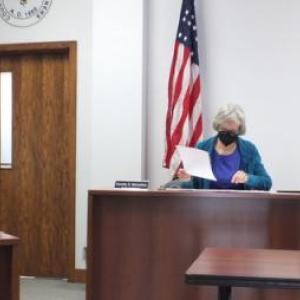Knox County Commissioners hand off consideration of American Recovery grant applications to Budget Committee
 Knox County Administrator Andrew Hart, Commissioner Dorothy Meriwether, and Commissioner Richard L. Parent. (Photo by Chris Wolf)
Knox County Administrator Andrew Hart, Commissioner Dorothy Meriwether, and Commissioner Richard L. Parent. (Photo by Chris Wolf)
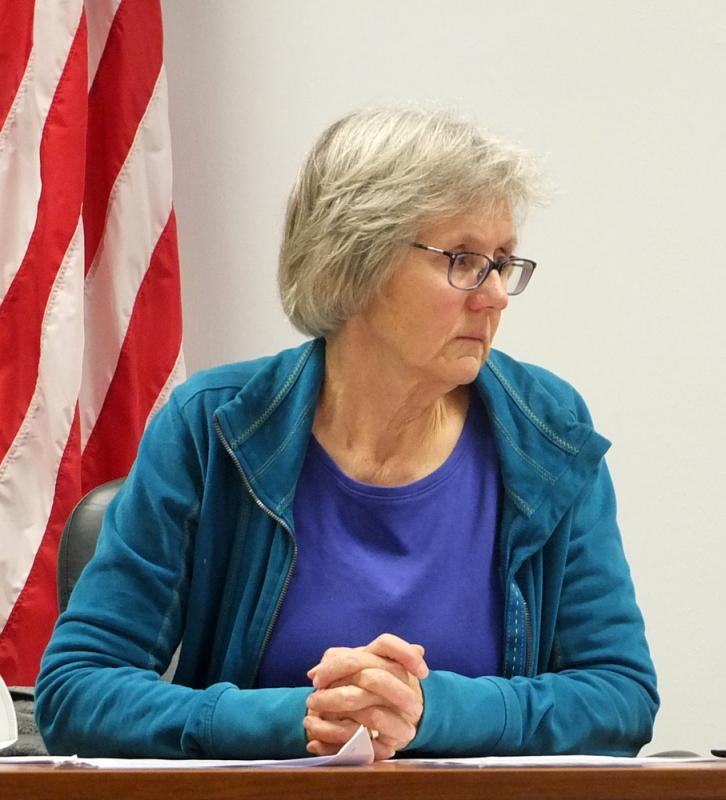 Knox County Commissioner Dorothy Meriwether reflects after reading the open letter. (Photo by Chris Wolf)
Knox County Commissioner Dorothy Meriwether reflects after reading the open letter. (Photo by Chris Wolf)
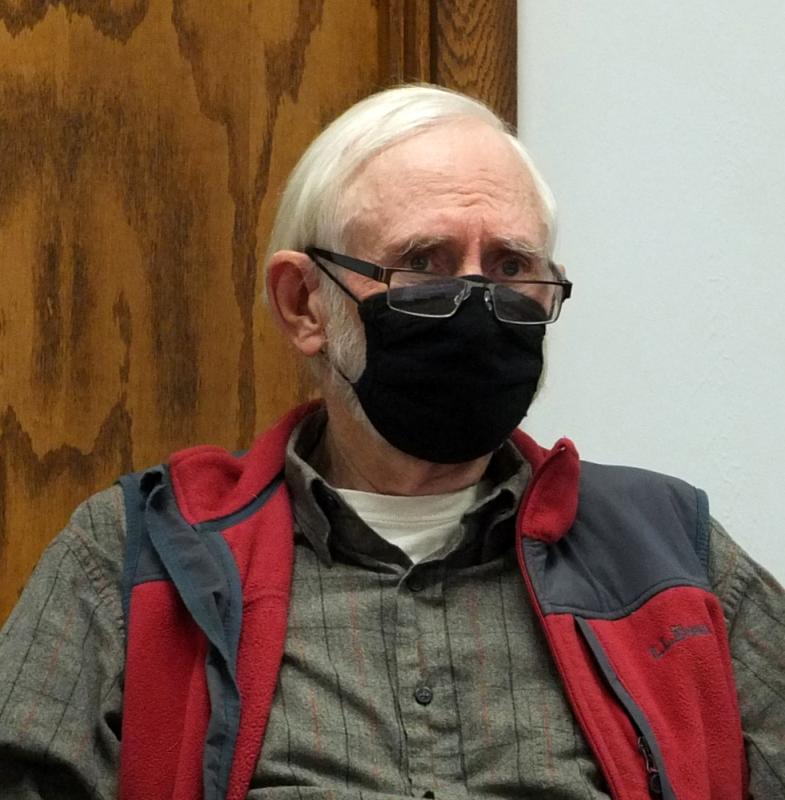 Knox County Commissioner Richard L. Parent. (Photo by Chris Wolf)
Knox County Commissioner Richard L. Parent. (Photo by Chris Wolf)
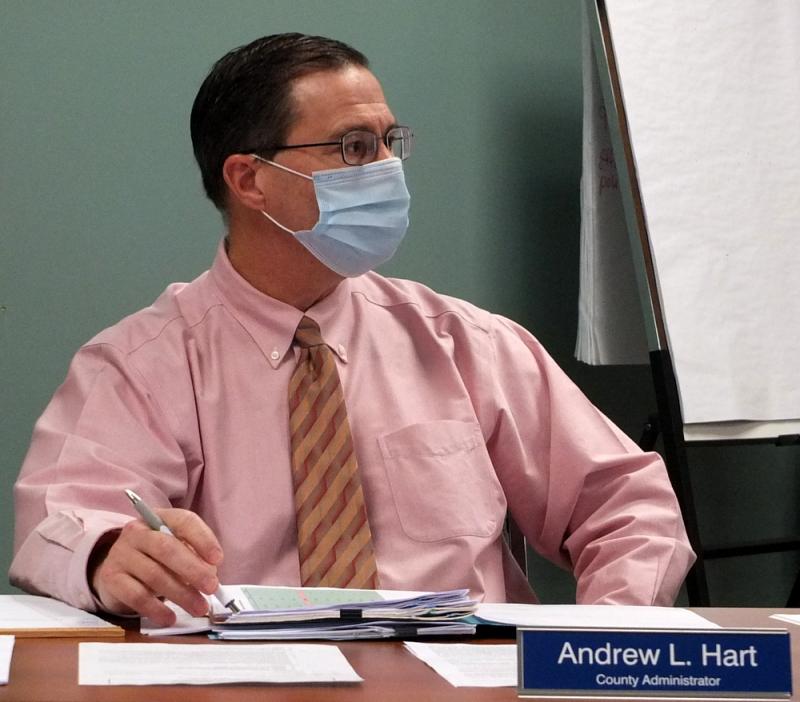 Knox County Administrator Andrew Hart (Photo by Chris Wolf)
Knox County Administrator Andrew Hart (Photo by Chris Wolf)
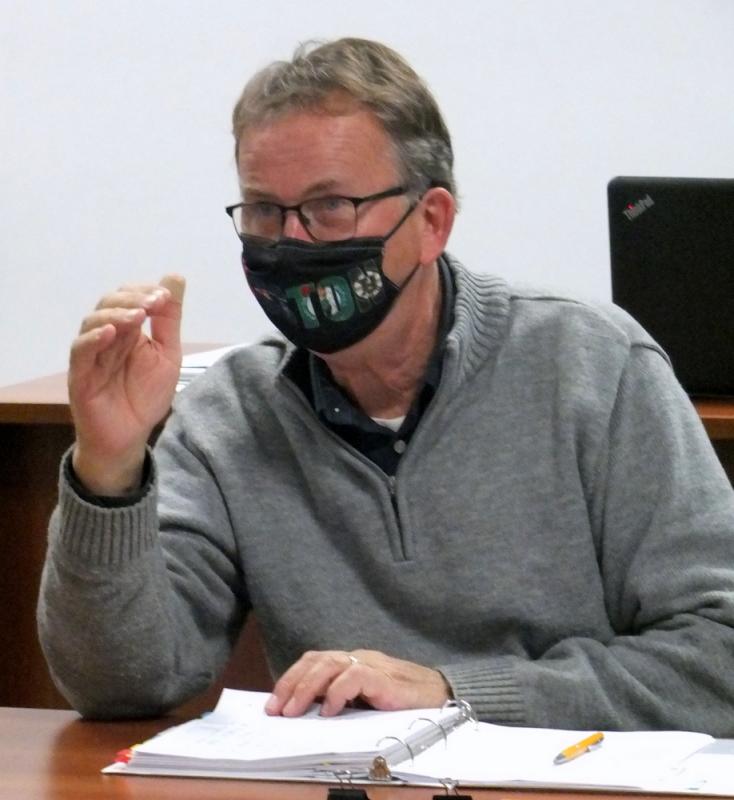 Budget committee member Robert Duke, of Rockport. (Photo by Chris Wolf)
Budget committee member Robert Duke, of Rockport. (Photo by Chris Wolf)
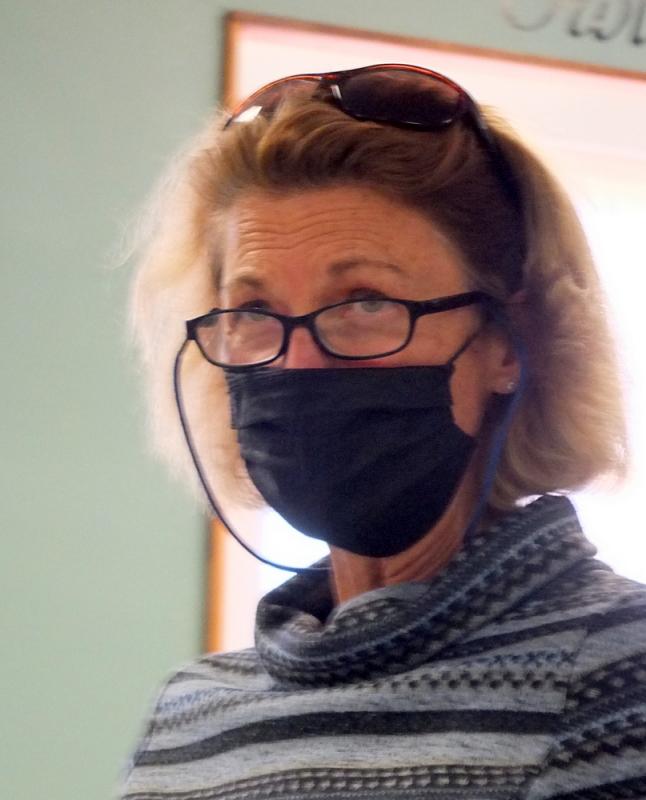 Denise Munger, Rockport Select Board member. (Photo by Chris Wolf)
Denise Munger, Rockport Select Board member. (Photo by Chris Wolf)
 Knox County Administrator Andrew Hart, Commissioner Dorothy Meriwether, and Commissioner Richard L. Parent. (Photo by Chris Wolf)
Knox County Administrator Andrew Hart, Commissioner Dorothy Meriwether, and Commissioner Richard L. Parent. (Photo by Chris Wolf)
 Knox County Commissioner Dorothy Meriwether reflects after reading the open letter. (Photo by Chris Wolf)
Knox County Commissioner Dorothy Meriwether reflects after reading the open letter. (Photo by Chris Wolf)
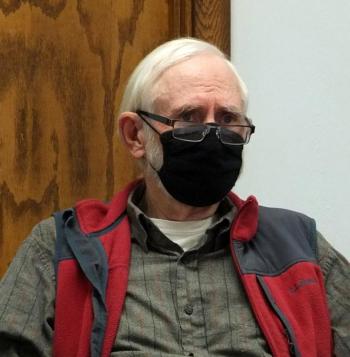 Knox County Commissioner Richard L. Parent. (Photo by Chris Wolf)
Knox County Commissioner Richard L. Parent. (Photo by Chris Wolf)
 Knox County Administrator Andrew Hart (Photo by Chris Wolf)
Knox County Administrator Andrew Hart (Photo by Chris Wolf)
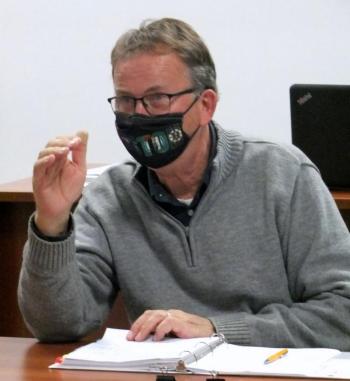 Budget committee member Robert Duke, of Rockport. (Photo by Chris Wolf)
Budget committee member Robert Duke, of Rockport. (Photo by Chris Wolf)
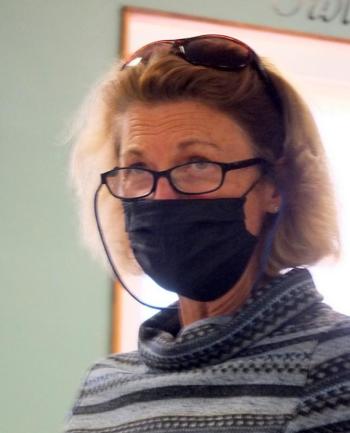 Denise Munger, Rockport Select Board member. (Photo by Chris Wolf)
Denise Munger, Rockport Select Board member. (Photo by Chris Wolf)
ROCKLAND – The regularly scheduled meeting of the Knox County Commissioners got underway on Tuesday, November 9, in chambers of the Knox County Courthouse. Commissioner Sharyn Pohlman was absent due to the passing of her mother that necessitated her being in California, reported Knox County Administrator Andy Hart, who spoke for the county in expressing condolences for her loss.
Commission chair Richard Parent began with reading an open letter from the commissioners to the municipalities of Knox County regarding the American Recovery Plan Act (ARPA) funds then passed the letter to Commissioner Dorothy Meriwether to finish. (See attached PDF for complete letter)
County disbursement of the ARPA funds has been a source of controversy and allocations as to how the funds were to be expended. Knox County has received $3.5 million of an allocated $7.7 million and the money must be allocated by Dec. 31, 2024.
Commissioners have spent $411,000 of the ARPA funds as emergency retention funds for county employees to keep them on the job. Those payments will run through Dec. 31, 2021.
“As your commissioners, we want to say publicly that we have heard you,” said Parent, reading from the letter. “We have listened to you in our meetings and we have considered the thoughtful input of your elected and other representatives, we have read the conversations through the media and we have read each and every email and letter addressed to us on this issue.”
The letter stated that the commission will not allocate or expend any of the remaining ARPA funds. This will be handled as part of the normal budget process through the Knox County Budget Committee for its discussion and approval.
The Budget Committee consists of nine members elected from eight districts within the county. Each member serves a four-year term.
Commissioners Richard Parent and Dorothy Meriwether said after the commission meeting had adjourned that the letter was composed in consultation with an attorney. The Commission drafted the Open Letter in conjunction with Knox County Attorney Peter Marchesi.
“Once the emotion from the meetings was gone,” said Parent, “it was a little easier to think about it in real terms than it was immediately after the meeting.”
Allocating the funds as part of the budget process would put the eventual decisions off until January, after completion and approval of the county’s 2022 budget.
This caused some confusion at the joint Knox Budget and County Commission meeting at 5 p.m. following the County Commissioners meeting when the letter was read. Budget Committee members were given a copy of the letter and informed of the commission’s intent in handling the funds.
Knox Administrator Andrew Hart explained to members of the Budget Committee that the commissioners felt what made sense was to finish the 2022 budget because the budget has already been submitted to the Budget Committee for review.
“To amend it now would be a lot of work,” said Hart. “So, we’ll finish this budget and get it approved and then as a separate item in 2022 as early as we can get through that, and then it will be an amended budget to the 2022 budget.”
Budget Committee member Bob Duke, of Rockport, said it had been made clear that it was not the Budget Committee’s role to be involved in the distribution of any funds.
“The county charter says that our role is to review the budget and only the budget,” said Duke. “Has there been some directive from the federal government or legal that we need a new role?”
Hart responded that federal guidelines would require a budget process for the funds. He said that none of the funds could be applied in anticipation toward the budget. He said that he would get clarification and have answers for committee members within the next couple of meetings.
“I wanted to present the letter as it was read at today's commissioners’ meeting,” said Hart. “To be honest, I don’t want to get into a whole discussion about this tonight. There are some things I’m not really comfortable answering because I don’t have all the information. I’d really rather move on to the budget we have tonight. We’re still trying to get some clarification from the consultant on some items. Till we have that I don’t want to give you an answer because I don’t want to give you the wrong answer.”
After the afternoon meeting of the Commissioners, Rockport Select Board member Denise Munger said that she appreciated the letter from the commissioners and the time they took to put it together.
“We’ll look forward to the budget process for Midcoast Internet,” she said.
Rockport had requested $750,000 in ARPA funds for its broadband project.
On Monday, October 8, Governor Janet Mills visited Brodis Blueberries in Hope to announce a new round of ARPA funds to help Maine farmers. In response to a question posed to her about about Maine’s efforts toward broadband, she said: “We have already convened the Maine Connectivity Authority. We’ve just hired an executive director who is starting this week. We’ve met with other tech people and stakeholders and we are accepting some $129 million in federal funds, and we are ready to help the communities all across this state to do more planning to determine what’s best, most efficient, and most affordable for their communities to make broadband not only affordable but available to Maine families.”
One of the concerns of the Midcoast area is getting broadband into the rural areas, including themany peninsulas that are particular to the Maine coast geography, said Governor Mills.
“The Connectivity Authority will be focused on taking the dark fiber that’s available and making it available for the minimal and the last mile to farms and businesses across the state.”
Mills said it is not an easy thing because of Maine’s geography.
“We have these peninsulas that make it hard to run fiber. If you stretch these peninsulas out it's 3,500 miles and we have the most dispersed population of any state in the country. It’s a challenge, but we’re ready to do it with a great group of people that have come together. We’re mapping the state to find the gaps and figuring out how we can fill those gaps quickly and efficiently.”
Event Date
Address
62 Union Street
Rockland, ME 04841
United States

